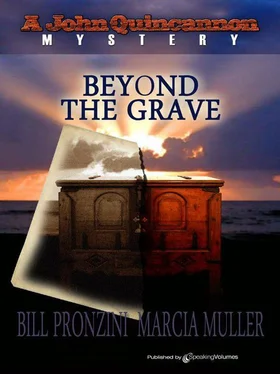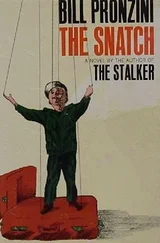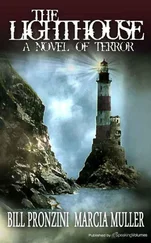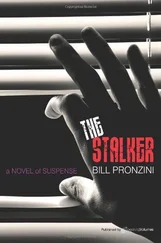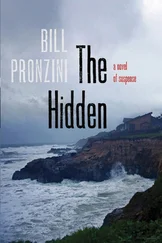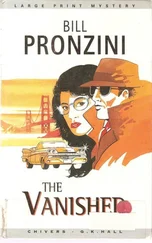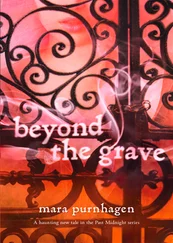Bill Pronzini - Beyond the Grave
Здесь есть возможность читать онлайн «Bill Pronzini - Beyond the Grave» весь текст электронной книги совершенно бесплатно (целиком полную версию без сокращений). В некоторых случаях можно слушать аудио, скачать через торрент в формате fb2 и присутствует краткое содержание. Год выпуска: 2011, ISBN: 2011, Издательство: Speaking volumes, Жанр: Исторический детектив, на английском языке. Описание произведения, (предисловие) а так же отзывы посетителей доступны на портале библиотеки ЛибКат.
- Название:Beyond the Grave
- Автор:
- Издательство:Speaking volumes
- Жанр:
- Год:2011
- ISBN:9781612321202
- Рейтинг книги:4 / 5. Голосов: 1
-
Избранное:Добавить в избранное
- Отзывы:
-
Ваша оценка:
- 80
- 1
- 2
- 3
- 4
- 5
Beyond the Grave: краткое содержание, описание и аннотация
Предлагаем к чтению аннотацию, описание, краткое содержание или предисловие (зависит от того, что написал сам автор книги «Beyond the Grave»). Если вы не нашли необходимую информацию о книге — напишите в комментариях, мы постараемся отыскать её.
Beyond the Grave — читать онлайн бесплатно полную книгу (весь текст) целиком
Ниже представлен текст книги, разбитый по страницам. Система сохранения места последней прочитанной страницы, позволяет с удобством читать онлайн бесплатно книгу «Beyond the Grave», без необходимости каждый раз заново искать на чём Вы остановились. Поставьте закладку, и сможете в любой момент перейти на страницу, на которой закончили чтение.
Интервал:
Закладка:
“I will not ask you to join the fight against the Americanos, fray ,” Don Esteban said. “You may leave with the women and children, with my blessing. The decision is yours.”
“I will stay,” the padre said without hesitation. “It is God's will that I remain with my church.”
Don Esteban nodded. He had expected that this would be the mendicant's answer. “I have an important task for you, then. It must be accomplished in all haste and secrecy.”
“ Si , Don Esteban.”
The room was dark, somber except for the fire burning on the hearth grate; the firelight reflected glassily off the rich-grained oak cabinets, made the religious artifacts arranged within them gleam as if with a life of their own. Don Esteban went to the cabinets, stood looking at the artifacts for a moment. Altogether there were two-score of them, gathered on travels to Spain in his early years, to Mexico and throughout California in his later ones. Crucifixes, censers, statues of the Virgin Mary, of the Madonna and Child, of the various saints-all handcrafted of gold and silver, some decorated with precious stones. Holy books encased in bejeweled metal covers. Icons and devotional paintings by El Greco, Francisco de Zurbaran, Jusepe de Ribera. Other items of comparable rarity and value.
He faced Padre Urbano again. “These must not fall into the hands of Fremont's soldados ,” he said grimly. “You must find a safe place to hide them.”
“At the pueblo?”
“ Si . The Americanos will not think to look for such treasures there. And quickly, fray . We have little time left.”
“It will be done. Upon my word as a man of God.”
With the padre's help, Don Esteban wrapped each of the artifacts in monk's cloth and carefully placed them inside a large wooden crate brought by one of the servants. A few items of personal value to his wife and son were also wrapped and put into the crate. Two mestizos were then called to carry the crate down to the courtyard and set it in the mendicant's wagon.
“Bring me word when you have found a place,” Don Esteban said, drawing the padre aside. “I must leave a record of the location for Dona Gloria and the boy Felipe.”
“You will receive me again before dusk, Don Esteban.”
“ Bueno . Before dusk.”
Don Esteban watched as the carreta clattered down the muddy road to the pueblo. When it disappeared behind a stand of oaks, he returned to the escritorio and began to write a letter to his wife and son, one he prayed they would one day read. Once he finished, there would be little else to do except to await Padre Urbano's return. And then to begin the long wait for the coming of Fremont's soldados . And then to fight. And then to die as he had lived, as any good caballero lived-with dignity and honor.
The siege began the afternoon of the following day. It was preceded by the arrival of an officer bearing a flag of truce and bringing a formal request for surrender. But surrender meant imprisonment, perhaps the gallows; surrender meant dishonor. Don Esteban refused. A short while later the first shots were fired.
It was a brief skirmish, and a bloody one. The Yanqui detachment numbered one hundred men, heavily armed with rifles and light cannon; there were fewer than twenty men left to defend the rancho, only five of those trained soldados , and a shortage of weapons and ammunition. The pueblo, where most of Don Esteban's men were deployed, came under attack first and was quickly overrun and seized. The empty garrison was set ablaze, as were most of the other buildings; the church of San Anselmo de las Lomas was partially destroyed by errant cannon fire. Padre Urbano, the one man of all the rancho's defenders who might have been spared by the invaders, was inside the church, in the path of the cannonball when it shattered the adobe wall. He was killed instantly.
Three dozen troops stormed the hacienda, where Don Esteban awaited them with three mestizos and a pair of matched silver dueling pistols. In the first exchange of fire, Don Esteban fell at the main gate with a bullet in his chest. He, too, died instantly.
There were no survivors.
PART I
1986
ONE
I almost missed the auction because of Mama being in the hospital. She'd been rushed there the night before, after collapsing in the recreation center of the mobile-home park where she lives. Her doctor had diagnosed a bleeding ulcer, and they were now running tests to see if she needed an operation. Mama wasn't saying much, but I could tell she thought she was going to die; there was a quiet resignation in her eyes-so dark against her drained face-and her work-worn hands lay still and protectively curled on the coarse hospital blanket.
I might have panicked had it not been for Nick Carillo, Mama's seventy-nine-year-old boyfriend. His manner was relaxed as he lounged on the chair next to her bed, and the smug expression on his bony, tanned face said that he was looking forward to many more years of taking Mama and her diet in hand. Nick is a health nut and constantly lectures both of us about our wicked ways with overly spicy and impure foods. Now he probably envisioned a million occasions upon which to say “I told you so.”
But he hadn't stalled in on it yet, and even though I knew neither Mama nor I would ever hear the end of this episode, I was grateful for his steadying presence. Nick had eleven years on my mother, had been through the countless illnesses of friends and relatives, and was far more realistic than any member of the Oliverez family. When the time for the auction approached and I said maybe I shouldn't go, he told me I was being foolish. “Attending the auction is your responsibility to the museum, Elena,” he said, “and besides, your Mama and I will be here when you get back, waiting to hear what treasures you've bid on.” So-ignoring Mama's dramatic farewell look-I went.
The sale of old furniture was being held in a cavernous building that used to be an auto showroom, on the frontage road where Route 101 cuts through Santa Barbara. I'd gone over there the afternoon before-Friday-to preview the items, and there were several I planned to bid on in the hope of acquiring them for the museum. When I arrived there that morning, I parked my car-a vintage VW beetle convertible that I had bought for a song the summer before and was unashamedly proud of-at the far side of the lot where no one could open his door into it and ding its costly yellow paint job. Then I looked in my purse to make sure I had the auction catalog and hurried over to the showroom; the sale was to begin at noon, twelve minutes from now.
Inside, the temperature was at least ten degrees warmer than in the parking lot. Although it was a balmy April day, overhead fans worked sluggishly, and even the most scantily dressed browsers waved catalogs to supplement the fans' ineffectual efforts. Several rows of folding chairs had been set up in the center of the room, in front of a raised platform, and some of the smaller items had been moved up there behind the podium. Other pieces, many of them quite massive, ranged along the sides, where would-be buyers were inspecting them. I took a seat in the front row of chairs and waited for the auction to start.
As director of Santa Barbara's Museum of Mexican Arts, I am not strictly responsible for acquisitions. However, our curator, Rodolfo Lopez-better known as Rudy-had only joined the staff last November, and he was still bogged down in learning the myriad details of the position I'd vacated nearly a year ago when I'd been named director. Rudy was in Los Angeles this weekend attending a big estate auction, and he'd asked me to cover this smaller one here at home. I was only too glad to do so; basically I'm a curator at heart, not an administrator. And the auction promised to be a good one: What Rudy wanted to buy was furniture for a display that would show how Alta Californians had lived in the era of los ranchos grandes , and there were several good pieces here that dated from that fabled period. I had my eye on a pair of convent chairs, a hand-carved dining table, and a small marriage coffer. The coffer-a low chest measuring three feet long by two feet tall and incongruously resembling a coffin, which had once contained a bride's dowry-was a particularly fine piece, hewn of dark wood, with a boldly carved crucifix pattern around its edges and hammered brass fittings on the hinged top and on the shallow drawer below the main compartment.
Читать дальшеИнтервал:
Закладка:
Похожие книги на «Beyond the Grave»
Представляем Вашему вниманию похожие книги на «Beyond the Grave» списком для выбора. Мы отобрали схожую по названию и смыслу литературу в надежде предоставить читателям больше вариантов отыскать новые, интересные, ещё непрочитанные произведения.
Обсуждение, отзывы о книге «Beyond the Grave» и просто собственные мнения читателей. Оставьте ваши комментарии, напишите, что Вы думаете о произведении, его смысле или главных героях. Укажите что конкретно понравилось, а что нет, и почему Вы так считаете.
